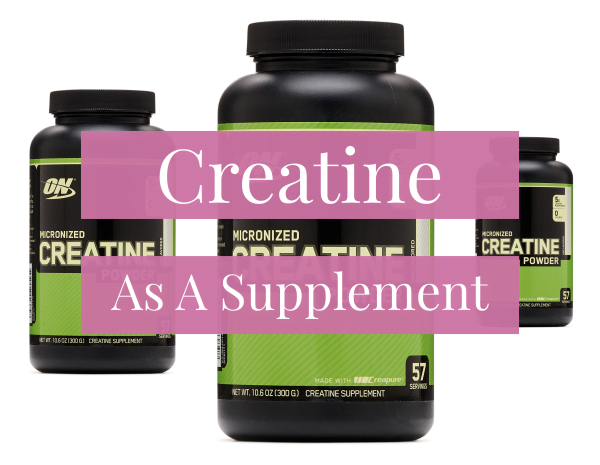Is it a true ergogenic aid?
Classified as a category A ergogenic aid, creatine has been approved as a safe supplement to consume. Creatine monohydrate is the most common form of creatine used and it can increase creatine in the muscle and phosphocreatine by 20%. (Lanham-New et al. 2011). Many studies have shown its beneficial effects used by athletes.
Is there evidence that it can or does enhance performance/aid training adaptation?
Yes, there is evidence. It is thought that creatine supplementation may enhance maximum isometric strength and may also improve the performance of single + repeated bouts of high intensity exercises (less than 150seconds duration).
Also can cause a gain in lean mass, muscle strength/power improvements (Burke et al. 2018).
What type of athlete would it be useful for?
Creatine supplementation is beneficial for resistance, sprint, interval and exercises that involve intermittent work (i.e. field, court). There is no research that backs up beneficial effects for aerobic/endurance performance (although may potentially beneficial as it may cause glycogen storages to maximise) (Lanham-New et al. 2011).
Recommended dosage?
20g/day for the loading phase (which can be divided into 4 equal doses/day) for 5-7 days.
3-5g/day (single dose) for the maintenance phase for the supplementation period
Consuming with a mix of CHO/protein (50g of protein and CHO) may aid intake of creatine uptake via insulin stimulation.
Are there any potential side effects/contraindications?
Since creatine is classified as a category A ergogenic aid, it is deemed safe and approved. Creatine has no negative associated health effects on the athlete in terms of long usage (4 years) if the athlete follows the appropriate rules and regulations using creatine.
It is recommended not to use creatine as an ergogenic aid by individuals with pre-existing renal disease or the potential risk of renal dysfunction such as diabetes, hypertension and reduced GFR). (Lanham-New et al. 2011).
Is it safe?
ISSN (International Society of Sports Nutrition) stated that ‘Creatine monohydrate is the most effective ergogenic nutritional supplement currently available to athletes and creatine monohydrate supplementation is not only safe, but has been reported to have a number of therapeutic benefits in healthy and diseased populations ranging from infants to the elderly’. (Kreider et al. 2017).
For more, check out the link: https://www.ncbi.nlm.nih.gov/pmc/articles/PMC5469049/pdf/12970_2017_Article_173.pdf
Author: Hannah Griffin
References:
Burke, L.M., Dvorak, J., Philips, S. and Peeling. P. (2018). IOC Consensus Statement: Dietary Supplements and the High-Performance Athlete. International Journal of Sport Nutrition and Exercise Metabolism. 52 (0), 1-19.
Kreider, R.B., Kalman, D.S., Antonio, J., Ziegenfuss, T.N., Wildman, R.,Collins, R., Candow, D.G., Kleiner, S.M., Almada, A.L. and Hector L. Lopez, H.L. (2017). International Society of Sports Nutrition position stand: safety and efficacy of creatine supplementation in exercise, sport, and medicine. International Journal of the International Society of Sports Nutrition. 14 (18), 1-18.
Lanham-New, S.A., Stear, S.J., Shirreffs, S.M. and Collins, A.L. (2011) Sports and Exercise Nutrition. India: Wiley-Blackwell.



